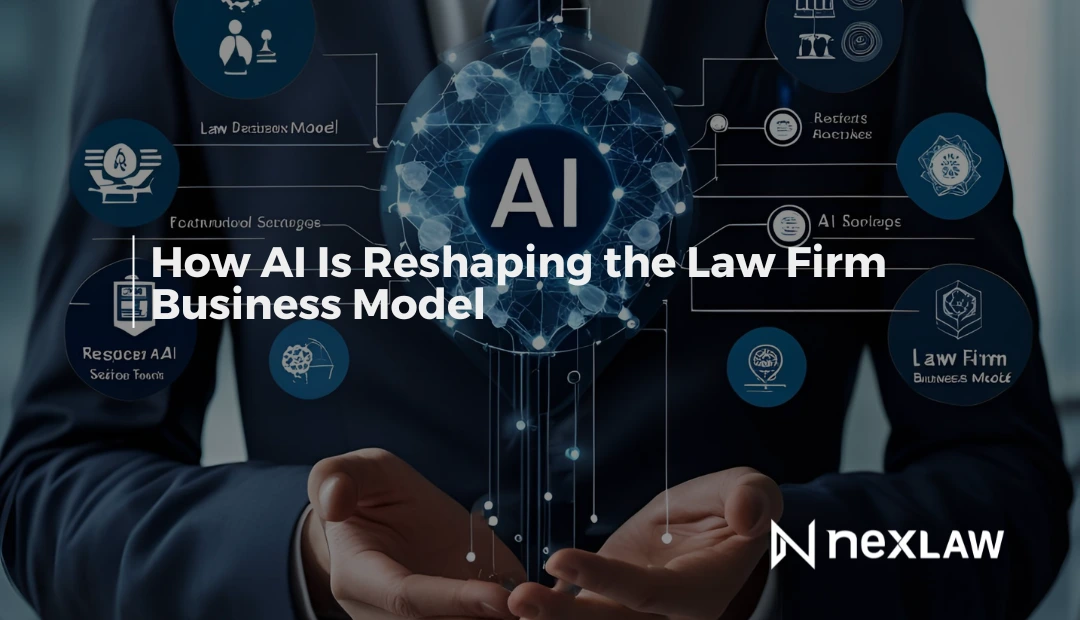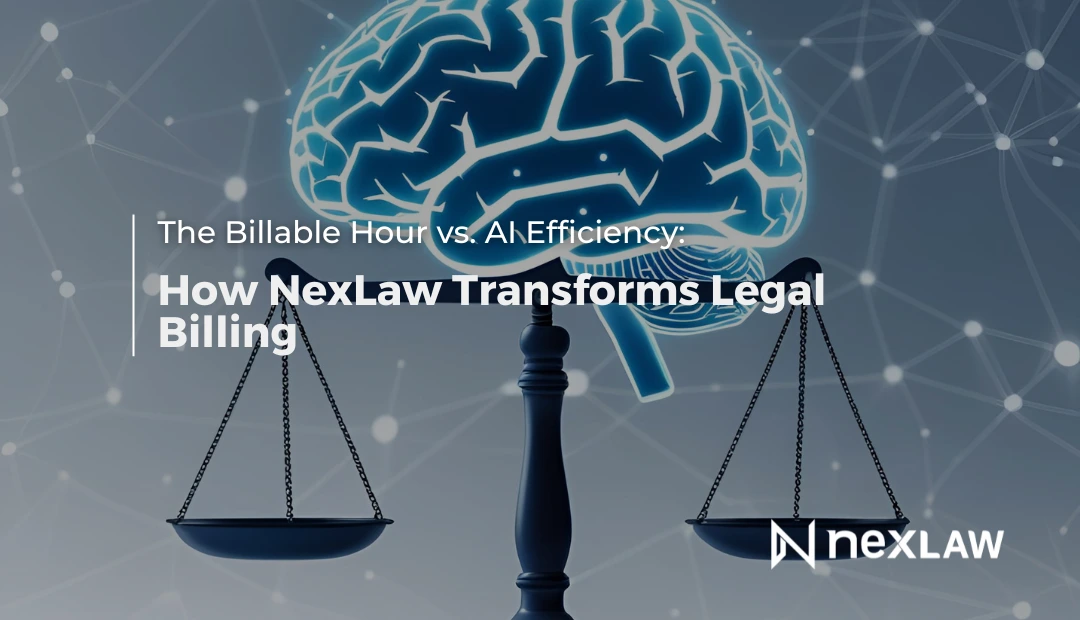How AI Is Reshaping the Law Firm Business Model
Artificial intelligence fundamentally transforms law firm business models by revolutionizing cost structures, service delivery methods, and competitive dynamics. This transformation extends beyond operational efficiency to strategic redefinition of how legal services are priced, delivered, and differentiated in increasingly competitive markets.
Unlock Legal Insights Instantly!
The Traditional Law Firm Business Model Challenge
Traditional law firm economics rely on billable hour structures that create inherent tensions between efficiency and profitability. The legal industry’s inherent risk aversion has historically stymied widespread implementation of transformative technologies, leaving many firms hesitant to fully embrace AI’s potential to significantly reduce legal fees while maintaining or even improving accuracy.
Traditional business model limitations include billable hour dependency that discourages efficiency improvements, labor-intensive operations that limit scalability and profitability, inconsistent service quality based on individual attorney capabilities, price pressure from client demands conflicting with traditional revenue models, and competitive vulnerabilities in commoditized legal markets.
AI-Driven Cost Structure Transformation
AI adoption fundamentally transforms law firm cost structures through automation that reduces labor requirements while enhancing service quality and consistency:
Direct Labor Cost Reduction: AI automation eliminates substantial manual work requirements, reducing billable hour needs while maintaining or improving service quality. Organizations using specialized AI solutions see a 60% reduction in review time and a 30% improvement in risk identification compared to manual processes.
Overhead Optimization: Automated systems reduce administrative overhead, support staff requirements, and operational complexity while enhancing productivity.
Technology ROI: AI platforms provide measurable returns through efficiency gains that compound across multiple practice areas and case types.
Scalability Economics: AI-enabled services scale without proportional cost increases, enabling growth without traditional resource constraints.
Revenue Model Evolution and Innovation
The Jevons Paradox will likely come into play, as lawyers become exponentially more productive, they will simply do more, and law firm revenues will increase. This productivity multiplication creates opportunities for innovative revenue models that leverage AI capabilities.
Value-Based Pricing: AI-enhanced efficiency enables firms to price services based on value delivered rather than time invested, creating better client alignment and profit optimization.
Subscription Service Models: Predictable AI-driven service delivery enables subscription-based pricing that provides revenue stability while offering client cost predictability.
Outcome-Based Pricing: AI analytics enable sophisticated outcome prediction that supports performance-based fee structures aligned with client interests.
Technology-Enhanced Premium Services: AI capabilities enable premium service offerings that command higher fees through superior accuracy, speed, and strategic insight.
Competitive Strategy Redefinition
AI adoption creates new competitive dynamics that reshape market positioning and strategic differentiation:
Technology Leadership: Early AI adopters establish competitive advantages through superior capabilities that attract clients seeking innovative legal services.
Efficiency Differentiation: AI-enabled efficiency provides cost advantages that enable competitive pricing while maintaining profitability.
Service Quality Enhancement: AI-improved accuracy and consistency create service quality differentiation that commands premium pricing.
Market Expansion: Reduced service costs enable firms to address previously underserved market segments and geographic areas.
NexLaw’s Business Model Transformation Platform
NexLaw’s comprehensive AI platform enables fundamental business model transformation through integrated solutions that address cost structure optimization, revenue model innovation, and competitive positioning enhancement. Our platform provides the technological foundation for sustainable business model evolution.
Comprehensive Cost Optimization: NexLaw’s platform reduces operational costs across all practice areas while enhancing service quality and client satisfaction through automated workflows and intelligent analysis.
Revenue Model Flexibility: Our platform supports multiple pricing models including traditional billing, value-based pricing, subscription services, and outcome-based arrangements through comprehensive analytics and performance tracking.
Competitive Intelligence: Advanced analytics provide strategic insights that inform competitive positioning and market differentiation strategies.
Scalability Infrastructure: Cloud-based architecture enables rapid scaling without proportional cost increases or infrastructure constraints.
Unlike competing platforms that offer limited functionality, NexLaw provides comprehensive business transformation capabilities that reshape entire firm economics and competitive positioning.
Client Expectations and Market Dynamics
67% of corporate counsel expect their law firms to use cutting-edge technology, including generative AI, creating market pressure that fundamentally alters client-firm relationships and service expectations:
Technology Sophistication Requirements: Clients increasingly evaluate law firms based on technological capabilities and innovation leadership rather than traditional credentials alone.
Cost Transparency Demands: Modern clients expect detailed cost breakdowns and efficiency demonstrations that AI platforms can provide through comprehensive analytics.
Service Quality Consistency: Client expectations include consistent service quality regardless of case complexity or time constraints, which AI enables through automated quality assurance.
Speed and Responsiveness: AI-enabled rapid response capabilities become baseline client expectations rather than premium services.
Talent Strategy and Workforce Transformation
AI adoption fundamentally transforms law firm talent strategies and workforce composition:
Skill Requirement Evolution: Legal professionals must develop AI proficiency alongside traditional legal skills to maintain career relevance and competitive value.
Leverage Optimization: AI enables higher lawyer-to-support staff ratios while maintaining service quality, optimizing firm economics and career progression paths.
Recruitment Differentiation: AI-enabled practice environments attract top talent seeking technologically sophisticated career opportunities and innovative work environments.
Professional Development Investment: Firms must invest substantially in AI training and development to maximize technology adoption and maintain competitive talent pools.
Law schools are responding to the demand for AI skills by integrating generative AI training for new junior lawyers, creating workforce expectations that reshape hiring and development strategies.
Financial Performance and Profitability Enhancement
AI adoption creates multiple pathways to enhanced financial performance through operational optimization and strategic positioning:
Profit Margin Expansion: Reduced operational costs combined with premium pricing for AI-enhanced services create substantial profit margin improvements.
Revenue Growth: Enhanced capacity and service quality enable revenue growth without proportional cost increases.
Cash Flow Optimization: Efficient case resolution and automated billing processes improve cash flow management and working capital optimization.
Risk Mitigation: AI-enhanced quality control reduces malpractice risks and associated insurance costs while improving client satisfaction and retention.
Implementation Strategy and Change Management
Successful business model transformation requires strategic implementation that addresses organizational, financial, and market challenges:
Phased Transformation: Systematic implementation enables gradual business model evolution while maintaining revenue stability during transition periods.
Financial Planning: Comprehensive financial analysis ensures AI investment ROI while managing transition costs and revenue model changes.
Market Communication: Strategic communication of AI capabilities and benefits positions firms for market advantage while educating clients about value propositions.
Organizational Development: Change management programs ensure team adaptation to new business models while maintaining professional excellence.
Future Business Model Evolution
AI capabilities continue advancing toward even more dramatic business model transformation opportunities:
Autonomous Service Delivery: Future AI systems will enable largely autonomous legal service delivery for routine matters, fundamentally altering cost structures and competitive dynamics.
Predictive Service Models: Advanced analytics will enable predictive service delivery that anticipates client needs and provides proactive legal support.
Platform Business Models: Legal service platforms that coordinate multiple providers and capabilities will create new market structures and competitive dynamics.
Global Service Integration: AI-enabled services will facilitate global legal service delivery without geographic constraints or regulatory barriers.
Measuring Transformation Success
Business model transformation requires comprehensive metrics that demonstrate value creation and competitive advantage:
Financial Performance: Revenue growth, profit margin improvement, and ROI measurement demonstrate transformation success and investment justification.
Client Satisfaction: Enhanced client satisfaction scores and retention rates validate business model improvements and market positioning.
Competitive Position: Market share growth and competitive differentiation metrics demonstrate strategic success and sustainable advantage.
Operational Excellence: Efficiency improvements and quality enhancements provide objective measures of transformation effectiveness.
Redefine Your Legal Business Model for the AI Era
The economics of legal practice are evolving. AI isn’t just optimizing workflows—it’s reshaping how firms operate, deliver value, and compete. Traditional models are being replaced by agile, tech-enabled strategies that reduce costs and enhance client service.
NexLawAI empowers business model transformation through:
- NeXaAI Assistant – Automates core legal tasks, enabling value-based pricing and operational scale
- TrialPrep – Streamlines prep workflows, unlocking new efficiencies for alternative service models
- ChronoVault – Provides data-driven insights for firm-wide performance tracking and profitability optimization
Book a Demo – Explore how NexLaw supports next-gen legal economics
Explore Plans – Includes a free 3-day trial
GET 15% OFF annual plans with code: ANNIV15MONTHLY or ANNIV15ANNUALY | Offer valid until August 31, 2025





.webp)




